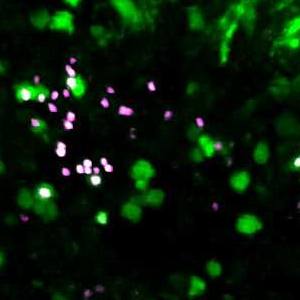-
“Rock star” baby is now a “rock star” preschooler
A child's first steps are always exciting for parents, but for Hetty and Tyler Mollert, it was a miracle.
Their daughter, Madelyn, has spina bifida, a congenital defect in which the spinal cord doesn't develop properly. People affected by this condition sometimes have long-term disabilities, such as weakness or paralysis, that limits the ability to walk. Despite getting Madelyn care at Mayo Clinic and elsewhere, the Mollerts could not predict how Madelyn would progress.
"She was about 2-and-a-half years old. We were playing with her when, all of a sudden, she just walked to us. We were like, 'Wait, what just happened?'," says Hetty Mollert, Madelyn's mother. "We're like, 'OK, now walk to daddy.' She was a little wobbly at first, but it was pretty awesome."
Surgery before birth
The Mollerts discovered their daughter had an opening in her spine during a routine 20-week ultrasound appointment. A closer examination revealed that Madelyn had myelomeningocele, the most serious form of spina bifida. The membranes and spinal nerves push through the opening in the spine, forming a sac and exposing tissues and nerves. Without intervention, this defect can cause life-threatening infections and severe lifelong disabilities.
It was an emotional roller coaster for the first-time parents from Madison, Wisconsin. They weighed the risks, which included preterm delivery, ruptured uterus or death of the baby in rare cases. Then they weighed the potential benefits of early intervention and opted for surgery at Mayo Clinic to close the spine before Madelyn was born.
"After that, it was like a normal pregnancy and delivery. My doctors who delivered her at our home hospital in Madison called her a rock star baby," says Hetty Mollert. "She still is a rock star. We've been very blessed with her remarkable achievements."
"She's still a rock star. We've been very blessed with her remarkable achievements."
- Hetty Mollert, Madelyn's mother
Clockwise: Tyler, Hetty, Ellie and Madeyln Mollert*

Madelyn is now a very active 4-year old preschooler who not only walks without assistance, but also runs, jumps and plays with her friends. Her mother describes her as "very smart, and a little stubborn."
She's also learning about spina bifida and is an active participant in her care, which includes weekly physical therapy.
"We are still working on skills like kicking," says Hetty Mollert. "If Madelyn wants to try sports, we'll let her try everything and anything she wants. And we'll go from there."
Regenerating the brain
Madelyn is one of three consecutive spina bifida patients Mayo Clinic researchers studied to determine the effects of surgery to close the spine before birth. Their study suggests that fetal surgery also regenerated brain structure, preventing a buildup of fluid on the brain that sometimes leads to disabilities in babies with severe spina bifida. This research is published in Mayo Clinic Proceedings. Madelyn's neurological function has been so strong that her physicians have said she no longer needs MRIs to monitor brain development.
Mayo Clinic's Center for Regenerative Biotherapeutics along with Regenerative Medicine Minnesota have supported research into fetal surgery as a way of advancing regenerative procedures and providing new cures for rare and complex conditions.
Among the challenges the Mollerts face is bladder and bowel management, which is common for children with spina bifida. They are working with a urologist who has prescribed medicine to improve kidney function, and they use a catheter a few times a day to empty Madelyn's bladder.
The Mollerts are optimistic about the Madelyn's future. One of Madelyn's favorite roles is being a big sister to her 1-year-old sister, Ellie. Aside from a little sibling rivalry, she loves being her mother's helper.
"She's always very curious about her little sister," says Hetty Mollert. "She's our perfect little angel."
###
Watch videos of Madelyn's progress:
*Photos and videos courtesy of Hetty Mollert
This article is an update on a previous story from 2020. Read the original here.








